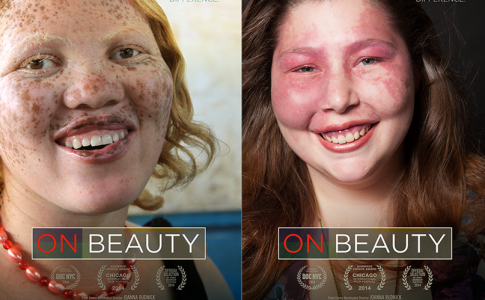Share Your Story in the Beauty in Breastfeeding Project
Each Monday, we’re sharing stories of the personal breastfeeding journeys of mothers throughout the State of Utah in cooperation with the Beauty in Breastfeeding Project. Read our earlier article to find out more about this initiative that celebrates breastfeeding mothers. To share your own story, visit www.beautyinbreastfeedingproject.com.
After a path to motherhood fraught with difficulty, I hoped that pregnancy, birth, and mothering through breastfeeding would unfold relatively naturally. My son was conceived with my husband’s and my first in-vitro fertilization attempt, and everything did go very smoothly from that point forward. Following an empowering birth, I settled back to allow my son to latch on.
And he did. And it hurt. And it didn’t stop hurting. Every feed was painful. My midwife said some pain is normal. I could not believe that breastfeeding with such pain could be normal. In the first few days my doula and my midwife returned for home visits and both reassured me that the pain I was experiencing was normal. I knew in my gut it could not be.
On day five, I felt like quitting. I was in so much pain and my son would nurse constantly. I knew something was wrong. I saw an IBCLC and she diagnosed my son with tongue tie. Finally! An answer and redemption for my gut feelings.
On day six, I had my son’s tongue tie revised by a pediatric dentist. I watched the procedure: my son screamed the entire time and my heart broke open. I vowed to never give up nursing him after putting him through such a traumatic experience.
Ask for help. If you don’t get what you need, keep asking. Never stop asking for what you and your baby need. If you don’t speak up for your baby, who will?
We kept nursing and things did not get better. While my son’s latch improved, pain in my nipples only increased. Around eight weeks postpartum, I reached a sort of breaking point when I awoke from slumber to burning pain in my nipples. The pain had increased so much that my nipples hurt before, during, and after nursing. I had come to a self-diagnosis and booked an appointment with an OB/GYN physician to get some help.
She confirmed that I had vasopsams, likely caused by Reynaud’s syndrome, and that nifedipine would hopefully help. After ten weeks of nifedipine, the vasospasms were finally gone for good.
The early months nursing my son were so very difficult, but they also revealed a strength I didn’t really know I had — my son’s fierce, protective, instinctual mother was born. It is also important to note that my husband was invaluable support. He never questioned my desire to continue nursing, and he never doubted my ability to feed our child.
Here is the advice I will pass on to any expectant or nursing mother encountering difficulty:
Ask for help. If you don’t get what you need, keep asking. Never stop asking for what you and your baby need. If you don’t speak up for your baby, who will?
Trust your gut. Your gut will tell you if something is wrong or if things are going well. Your gut will tell you if you are getting the help you need or if you must continue to speak up.
It is worth it. My son is 16 months old today, and I just nursed him to sleep. Each day I marvel at the magic of our nursing relationship.





No comments